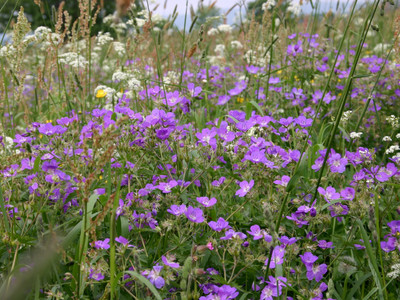The route leads through "typical" lynx habitats, past rocks, moors, and through wild forests.
"Wilderness" in Germany – does such a thing still exist?
The Harz is wilder than you think. In the Harz National Park, wilderness of fascinating extent and beauty is developing. Here, on almost 250 km², a unique natural landscape for Central Europe is emerging. The national park permanently protects these valuable areas so that nature can develop freely and biodiversity can be preserved.
Wilderness also includes wild animals. "The presence of a single bear changes the flavor of an entire landscape." This sentence is from Aldo Leopold, a forestry scientist and co-founder of modern ecology from the USA. The first wild bear needed 170 years after its extermination to set foot again on German soil in the Bavarian Alps. The idea that wild bears would return at all was hardly conceivable until a few years ago. Wolves and lynxes have meanwhile been quietly returning to Germany, perhaps also changing the flavor of our native landscape for you.
National parks offer wild animals large undisturbed refuges for survival. There are still far too few of these in Germany. Wilderness areas today cover hardly more than half a percent of Germany’s total land area. Usually, these are the core zones of the national parks. However, the designation of new protected areas often meets with considerable resistance. On the other hand, the Federal Government's National Strategy for Biological Diversity demands wilderness on 2% of Germany’s area; in the forest, natural forest development should take place over 5%. In addition, over 50 million visitors to our national parks per year generate considerable added value there. Reason enough to give wild nature in Germany a chance again.
On narrow hiking and mountain paths on the Hohnekamm in the Harz National Park, you can particularly well experience the beauty and fascination of wild nature. Follow us on the hike right into a region that lynxes now also explore again, where they hunt prey and always cautiously avoid humans.

